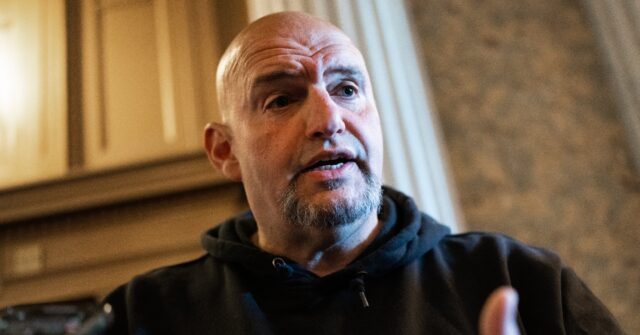In a recent conversation with podcaster Joe Rogan, Senator John Fetterman (D-PA) discussed the unique political landscape in Pennsylvania, particularly how former President Donald Trump continues to resonate with voters in a manner distinct from previous Republican candidates. Fetterman, a prominent voice in Pennsylvania politics, highlighted the significance of the state as a battleground and its critical role in the upcoming elections. He pointed out that as Vice President Kamala Harris candidly prepares for the polls, understanding Trump’s connection to Pennsylvania voters is essential not only for Democrats but for anyone analyzing the evolving political dynamics of the Rust Belt.
Fetterman detailed how Trump’s economically populist message profoundly appeals to communities that have experienced economic decline due to deindustrialization and the outsourcing of jobs to countries like China. This messaging is particularly impactful in the heart of the Rust Belt, where voters are grappling with the lingering effects of globalist policies that have dismantled traditional industries. The senator recalled his experience from the 2016 election cycle when Trump’s campaign revealed an unexpected ability to engage voters who felt overlooked by conventional political rhetoric. Fetterman expressed that this should have raised alarms for Hillary Clinton’s campaign as they underestimated Trump’s appeal.
Fetterman recounted a defining moment during the 2016 campaign when Trump announced a rally in Monessen, a small steel town in Pennsylvania. He observed that while establishment Republican candidates like Mitt Romney might secure rural areas with significant margins, Trump’s unique attraction to these voters translated into a staggering 80 percent support level. This widespread support among rural voters enabled Trump to overcome Clinton’s substantial backing in urban centers, such as Pittsburgh and Philadelphia. The energy and enthusiasm surrounding Trump’s campaign highlighted a pivotal shift in how voters affiliated with traditional Democratic strongholds began to embrace his message.
The senator’s decision to engage in an extended two-hour conversation with Rogan stands in contrast to the Harris campaign’s approach, which has been characterized by a reluctance to engage with leading media figures. Rogan indicated that Harris’s campaign imposed specific requirements for her potential interview, seeking an external setting and a significantly shortened format, which contradicted the conventional style of his podcast. This reluctance from Harris to engage with influential platforms like Rogan’s can be interpreted as a hesitance to confront uncomfortable truths about the political landscape in Pennsylvania and beyond.
Furthermore, Fetterman predicted that while he believes Harris will narrowly win Pennsylvania, he acknowledged the highly competitive nature of the race. The senator insisted that extensive travels in the state revealed an intense loyalty to Trump, challenging assumptions about Democratic dominance in the region. Recent polling results add credence to Fetterman’s observations, showing that Trump holds a lead among union and manual labor workers in Pennsylvania, suggesting that his message continues to cut through traditional party lines and resonate with key voter demographics. The poll results, which showed Trump leading Harris among union workers by four points and dominating manual workers by a striking 20 points, underscore the potential vulnerabilities for Democrats as they approach the elections.
In conclusion, the insights shared by Senator Fetterman with Joe Rogan illuminate the complexities of Pennsylvania’s political environment. The state appears to be at a crossroads, with Trump’s populist appeal challenging the established Democratic narrative and revealing the potential fissures within voter support. As the political landscape evolves, particularly with elections on the horizon, understanding these shifts will be crucial for both parties. Fetterman’s candid observations, coupled with current polling trends, highlight an urgent need for Democrats to reassess their strategies in engaging with voters who feel increasingly disenchanted with traditional political offerings.

